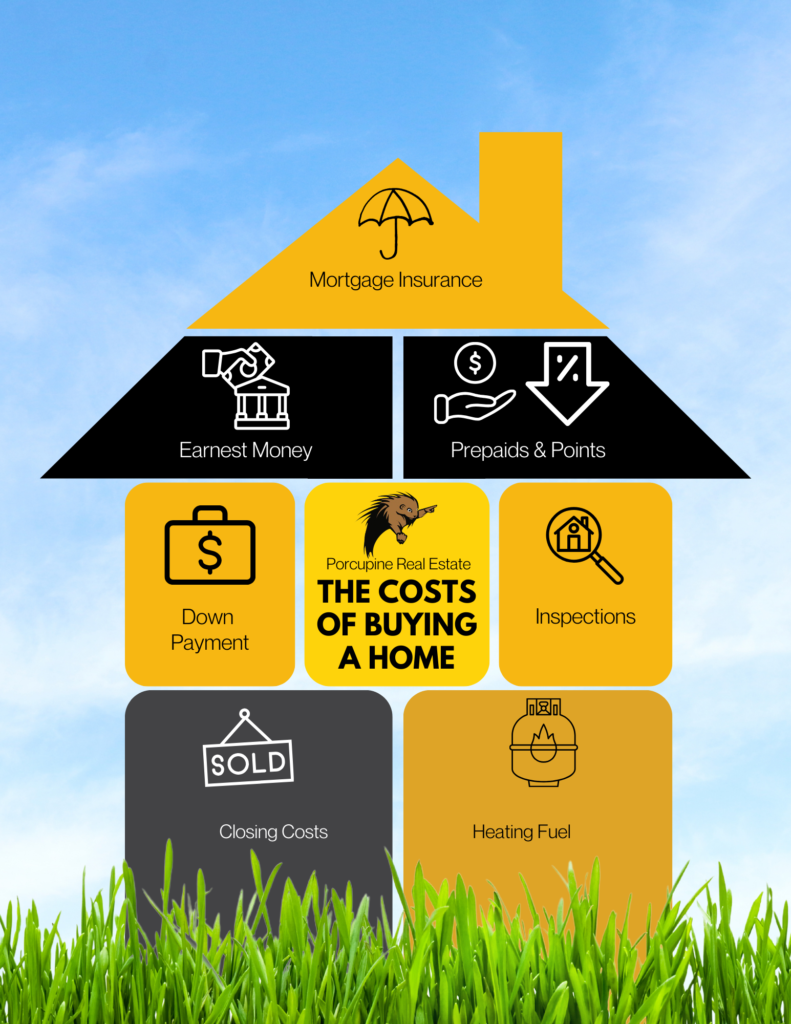Porcupine Real Estate Blog
How much money do I need to buy a home?

Many buyers have questions when it comes to buying a home, but one of the most frequent we hear is: What does it cost?
The Downpayment
The amount of money you pay towards the home purchase upfront is the down payment. For example, if you are using a conventional loan and putting 5% down on a $400,000 property, your downpayment will be $20,000.
Different financing options have different downpayment requirements, so be sure to talk with your lender about what fits your needs best.
Earnest Money Deposits
Once you've negotiated the purchase and your offer is accepted, the next step is to provide an earnest money deposit (basically, a good faith deposit). The amount provided will be suggested by your agent and can be a few thousand dollars or more.
The deposit will be turned over to the seller’s agent, who will then deposit it into their firm’s escrow account. At closing, this deposit will be credited toward your down payment or closing costs.
Closing Costs
When you apply for a mortgage, your lender will provide a Good Faith Estimate (GFE) of expected closing costs. These expenses will be on top of your down payment.
Your lender will be able to break it all down for you so you understand exactly what contributes to these costs, but here's a rough idea of the additional expenses you can expect to see:
- Appraisal
- Credit report
- Origination
- Title search & title insurance
- Recording fees
- Transfer tax

Prepaid Items
In addition to the closing costs, you will also see items that must be prepaid, like prorated property taxes, homeowners' insurance, and prepaid interest on any days remaining until the month.
Inspection Costs
Besides closing costs, you should plan on upfront expenditures for the home inspection, septic inspection (if applicable), radon tests (optional), and water test (if the home is on a well). Those can add up to between $575-$900 or more, depending on factors like the size of the house and the inspector you choose.
Mortgage Insurance
If you put less than 20% down on your home, you will likely see mortgage insurance included in your monthly payment. This insurance protects the lender in case you default on your loan.
Talk to your lender if you'd like an estimate of how much this will add to your monthly payment.
Heating Fuel
In New Hampshire, many homes are heated with oil or propane. When you close on your home, you usually have to reimburse the seller for any unused fuel in the tank.
Points
When interest rates are high, your lender might offer you the option of buying points (also called buy-downs) to lower your interest rate. 1 point = 1% of the loan amount, which is added to the closing costs.
For more information on what points are and how they work, check out this video:
Next Steps
Porcupine Real Estate is with you every step of the way. If you have questions at any point in the process, drop us a line.

